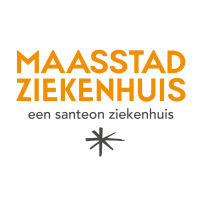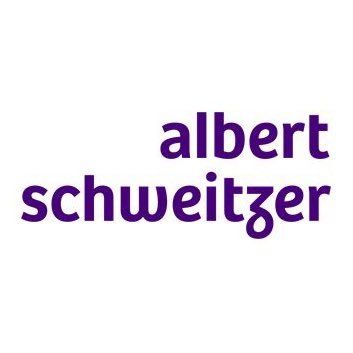预约演示
更新于:2025-05-07

Maasstad Ziekenhuis
更新于:2025-05-07
概览
关联
72
项与 Maasstad Ziekenhuis 相关的临床试验NCT06643286
Personalised Survivorship Care for Patients With Melanoma: A Multicenter Randomised Controlled Trial of the Survivorship Care Plan App
A multicentre randomised controlled trial (RCT) will be conducted to evaluate the effectiveness of the digital personalised Melanoma Survivorship Care Plan (SCP) app. A total of hundred-eighty melanoma patients (stage I and II) will be randomised to receive either the SCP Melanoma app or usual care. The app provides survivors with personalized healthcare information on diagnosis, treatment and follow-up and supportive care, tailored to their melanoma stage and phase and information needs.Through questionnaires, medical file records, patient-reported outcomes and use of medical care will be evaluated. In addition, log-data, questionnaires and interviews will be used to evaluate the process of the uptake and implementation of the digital SCP.
开始日期2025-04-01 |
申办/合作机构 |
NCT06766461
Beta-Lactam Antibiotics InitiaL ExpoSure OptimisEd in CriticallY Ill Patients with SEpsis
The aim of this study is to investigate if an initial short double dose of beta-lactam antibiotics will reduce mortality in critically ill patients with sepsis.
开始日期2025-01-03 |
申办/合作机构 |
NCT06432452
Efficacy of Endothelin Receptor Antagonism in Treatment of Coronary Artery Spasm: a Randomized Controlled Clinical Trial
The goal of this randomized clinical trial is to assess if adjunctive bosentan therapy, in comparison to placebo, can reduce the rate of epicardial vasospasm at follow-up spasm provocation CFT (fuCFT) in patients with previously proven epicardial vasospasm on acetylcholine reactivity testing (at index CFT) and ongoing angina(-like) complaints.
Participants will
* Use either endothelin receptor antagonist or placebo for 10 weeks
* Undergo follow-up acetylcholine spasm provocation test after 10 weeks
* Answer online questionnaires on angina and quality of life
Participants will
* Use either endothelin receptor antagonist or placebo for 10 weeks
* Undergo follow-up acetylcholine spasm provocation test after 10 weeks
* Answer online questionnaires on angina and quality of life
开始日期2024-11-11 |
申办/合作机构 |
100 项与 Maasstad Ziekenhuis 相关的临床结果
登录后查看更多信息
0 项与 Maasstad Ziekenhuis 相关的专利(医药)
登录后查看更多信息
1,375
项与 Maasstad Ziekenhuis 相关的文献(医药)2025-07-01·International Journal of Cardiology
Response to: “Movahed coronary bifurcation classification is more appropriate for research”
Letter
作者: Maurina, Matteo ; Sanguineti, Francesca
2025-06-01·BJA Open
The use of intrathecal morphine in non-abdominal surgery: a scoping review
Review
作者: van Gastel, Lieke ; Teunissen, Aart Jan W ; Koopman, Seppe A ; Stolker, Robert J
2025-05-13·Neurology
Prehospital Large-Vessel Occlusion Stroke Detection Scales
Review
作者: Nguyen, Truc My T. ; Durieux, Marcel D.J. ; Roozenbeek, Bob ; van Zwet, Erik W. ; Kerkhoff, Henk ; van den Wijngaard, Ido R. ; Kruyt, Nyika D. ; Dippel, Diederik W.J. ; Duvekot, Martijne H.C. ; Dekker, Luuk ; Lingsma, Hester F. ; Wermer, Marieke J.H. ; Ali, Mariam ; Daems, Jasper D. ; Venema, Esmee ; Moudrous, Walid
100 项与 Maasstad Ziekenhuis 相关的药物交易
登录后查看更多信息
100 项与 Maasstad Ziekenhuis 相关的转化医学
登录后查看更多信息
组织架构
使用我们的机构树数据加速您的研究。
登录
或

管线布局
2026年03月01日管线快照
无数据报导
登录后保持更新
药物交易
使用我们的药物交易数据加速您的研究。
登录
或

转化医学
使用我们的转化医学数据加速您的研究。
登录
或

营收
使用 Synapse 探索超过 36 万个组织的财务状况。
登录
或

科研基金(NIH)
访问超过 200 万项资助和基金信息,以提升您的研究之旅。
登录
或

投资
深入了解从初创企业到成熟企业的最新公司投资动态。
登录
或

融资
发掘融资趋势以验证和推进您的投资机会。
登录
或

生物医药百科问答
全新生物医药AI Agent 覆盖科研全链路,让突破性发现快人一步
立即开始免费试用!
智慧芽新药情报库是智慧芽专为生命科学人士构建的基于AI的创新药情报平台,助您全方位提升您的研发与决策效率。
立即开始数据试用!
智慧芽新药库数据也通过智慧芽数据服务平台,以API或者数据包形式对外开放,助您更加充分利用智慧芽新药情报信息。
生物序列数据库
生物药研发创新
免费使用
化学结构数据库
小分子化药研发创新
免费使用

